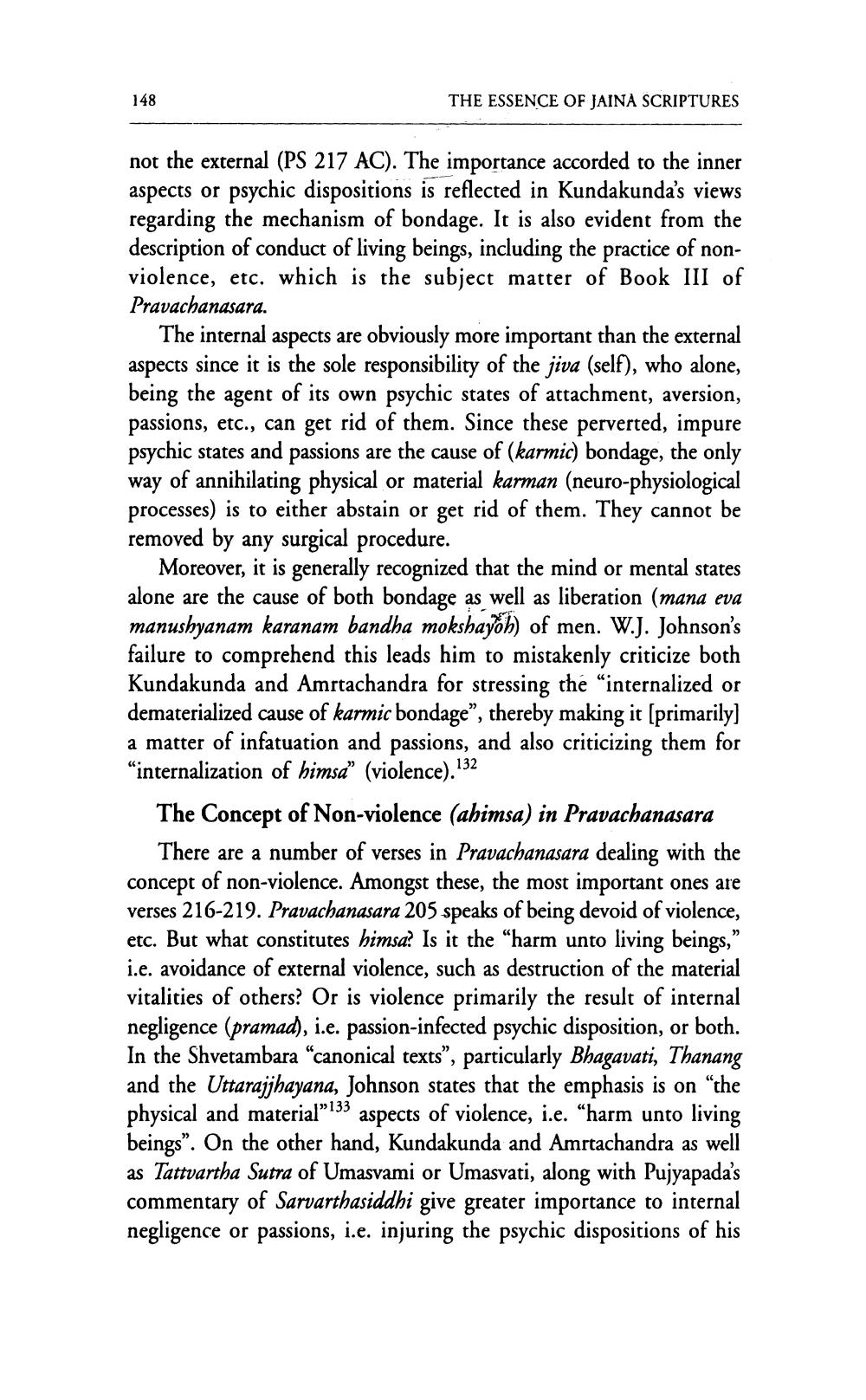________________
148
THE ESSENCE OF JAINA SCRIPTURES
not the external (PS 217 AC). The importance accorded to the inner aspects or psychic dispositions is reflected in Kundakunda's views regarding the mechanism of bondage. It is also evident from the description of conduct of living beings, including the practice of nonviolence, etc. which is the subject matter of Book III of Pravachanasara.
The internal aspects are obviously more important than the external aspects since it is the sole responsibility of the jiva (self), who alone, being the agent of its own psychic states of attachment, aversion, passions, etc., can get rid of them. Since these perverted, impure psychic states and passions are the cause of (karmic) bondage, the only way of annihilating physical or material karman (neuro-physiological processes) is to either abstain or get rid of them. They cannot be removed by any surgical procedure.
Moreover, it is generally recognized that the mind or mental states alone are the cause of both bondage as well as liberation (mana eva manushyanam karanam bandha mokshayoh) of men. W.J. Johnson's failure to comprehend this leads him to mistakenly criticize both Kundakunda and Amrtachandra for stressing the “internalized or dematerialized cause of karmic bondage”, thereby making it [primarily] a matter of infatuation and passions, and also criticizing them for "internalization of himsa” (violence). 132
The Concept of Non-violence (ahimsa) in Pravachanasara
There are a number of verses in Pravachanasara dealing with the concept of non-violence. Amongst these, the most important ones are verses 216-219. Pravachanasara 205 speaks of being devoid of violence, etc. But what constitutes himsa? Is it the "harm unto living beings," i.e. avoidance of external violence, such as destruction of the material vitalities of others? Or is violence primarily the result of internal negligence (pramad), i.e. passion-infected psychic disposition, or both. In the Shvetambara "canonical texts”, particularly Bhagavati, Thanang and the Uttarajjhayana, Johnson states that the emphasis is on the physical and material”133 aspects of violence, i.e. “harm unto living beings”. On the other hand, Kundakunda and Amrtachandra as well as Tattvartha Sutra of Umasvami or Umasvati, along with Pujyapada's commentary of Sarvarthasiddhi give greater importance to internal negligence or passions, i.e. injuring the psychic dispositions of his




